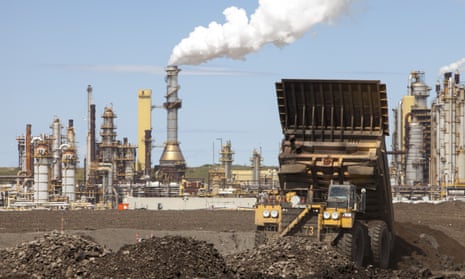The Canadian government has agreed a deal with eight of the country’s 10 provinces to introduce its first national carbon price, Justin Trudeau has told reporters.
The prime minister said the move would help Canada meet its international climate change obligations.
The agreement was struck on Friday only after heated talks. The energy-producing province of Saskatchewan did not sign up, saying the cost would be too great. Manitoba also declined to sign but officials said it might do so later.
Trudeau is promising to impose a carbon price on any province that refuses to sign on.
Under his plan, carbon pollution would cost C$10 (£6, US$7.60) a tonne in 2018, rising by C$10 a year until it reaches C$50 in 2022. The provinces can either implement a carbon tax or a cap-and-trade market.
In November Canada announced it would phase out the use of coal-fired electricity by 2030.
“Taking traditional coal power out of our energy mix and replacing it with cleaner technologies will significantly reduce our greenhouse gas emissions, improve the health of Canadians, and benefit generations for years to come,” the environment minister, Catherine McKenna, said.
Trudeau is broadly aligned politically with The US president, Barack Obama, who has pushed hard to cut emissions of greenhouse gases.
The US vice-president, Joe Biden, told the meeting he doubted the president-elect, Donald Trump, could undo much of the administration’s policies since many of them had taken firm hold.
The premier of Saskatchewan, Brad Wall, said the carbon price would make Canadian firms less competitive at a time when Trump looked likely to adopt policies cutting energy costs.
Four of Canada’s 10 provinces still use coal-based electricity. Alberta has been working toward phasing out coal-fired electricity by 2030.

Comments (…)
Sign in or create your Guardian account to join the discussion